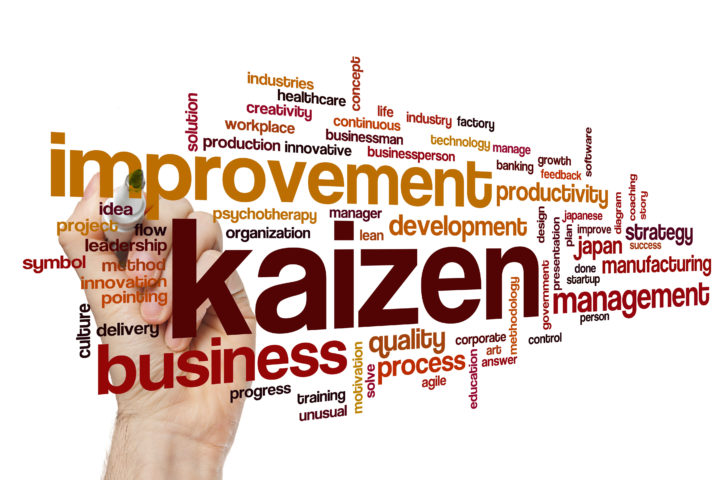Communication Kaizen
Winston Churchill took up painting at the age of forty, and eventually became very passionate and quite good at it, despite one or two other distractions on his mind. He once said, “When I get to heaven I mean to spend a considerable portion of my first million years in painting, and so get to the bottom of the subject.”
As Churchill reminds us, any worthwhile and challenging human activity takes a lot of work to do well, much less master. If anything, persuasive communication is even more nuanced and challenging than painting, because it requires you to adjust real time and to tailor your approach to the particular audience. So, whether it’s personal conversations, presentations, lean communication, writing emails and reports, or any other form of communication, the good and bad news is that you’re not as good as you could be.
It’s important to realize that improvement does not come automatically with time. Like driving a car, the average person reaches an acceptable skill level and then stays there for the rest of their life, unless they have a good reason to change.
As Anders Ericsson, perhaps the world’s reigning expert on expertise, says:
“Some professionals continue to improve steadily during many years and even decades, and are eventually recognized by their peers as having attained the highest levels as experts or masters. In contrast, most professionals in a domain reach a stable, average, undistinguished level of achievement within a relatively short time frame and maintain this mediocre level for the rest of their careers.”[1]
Unless you’re happy to count yourself among the average and undistinguished, you’ve got to want to change, and you’ve got be intentional in how you go about it. That spirit is captured in the concept of kaizen. The word kaizen comes from the Japanese characters “kai”, meaning change, and “zen”, meaning good. So, it means change for the better. It also includes the concept of continuous improvement, which means that you don’t make a one-time change and then live with the new status quo. Rather, you constantly look for ways to improve even on your improvements. As we’ve seen, it’s so easy for waste to creep into our regular communication, that it should not be difficult to constantly refresh your sources of possible improvements.
Take stock and prioritize
Start by thinking carefully about what you want to improve. If you decide you need to improve your communication skills, you probably already have a sense of what you want to work on. Whenever I start a coaching relationship with a new client, I ask them what their priorities, and most people can quickly identify two or three with no problem. If you’re not sure, start by self-monitoring: consciously pay attention to yourself as you engage in regular communication. You could even take it a step further by either asking others for feedback, or even videotape yourself.
We don’t have a million years to work on our skills, but we should also be patient and realistic. It’s hard to change too many things at once, so if your list is longer than about three items, I suggest picking one or two areas at a time. You don’t have to get it perfect, but improve it a little and then move to the next.
Be clear about your intentions
Implementation intentions have been found to be highly effective in reminding and motivating desired behaviors. Rather than vaguely saying you’re going to try to get better, think about specifically what you will do differently and when. So, you might say, “When I go to the meeting on Tuesday, I will consciously try to start with the bottom line up front every time I’m asked a question.” Implementation intentions work well if you only go through them in your mind, but they work even better if you write them down. You’ll be amazed of how your mental reminder will kick in when you’re in the actual situation you envisioned.
Review
How many times have you left a meeting and said to yourself: “I wish I had said this, or asked that”? The first few minutes after an encounter are the best time to conduct an after-action review, even if only informally. Go over what went right, what you could have done differently, and then turn that into implementation intentions for your next meeting or conversation.
By the way, if Churchill has been true to his word, by my calculations he’s spent 54 years so far working on his craft. I wonder how it’s going?
[1] K. Anders Ericsson, Enhancing the Development of Professional Performance: Implications from the Study of Deliberate Practice, in Development of Professional Expertise, p. 405.





